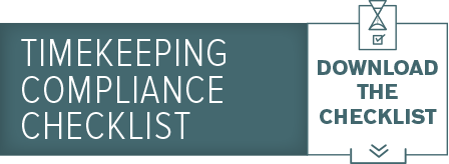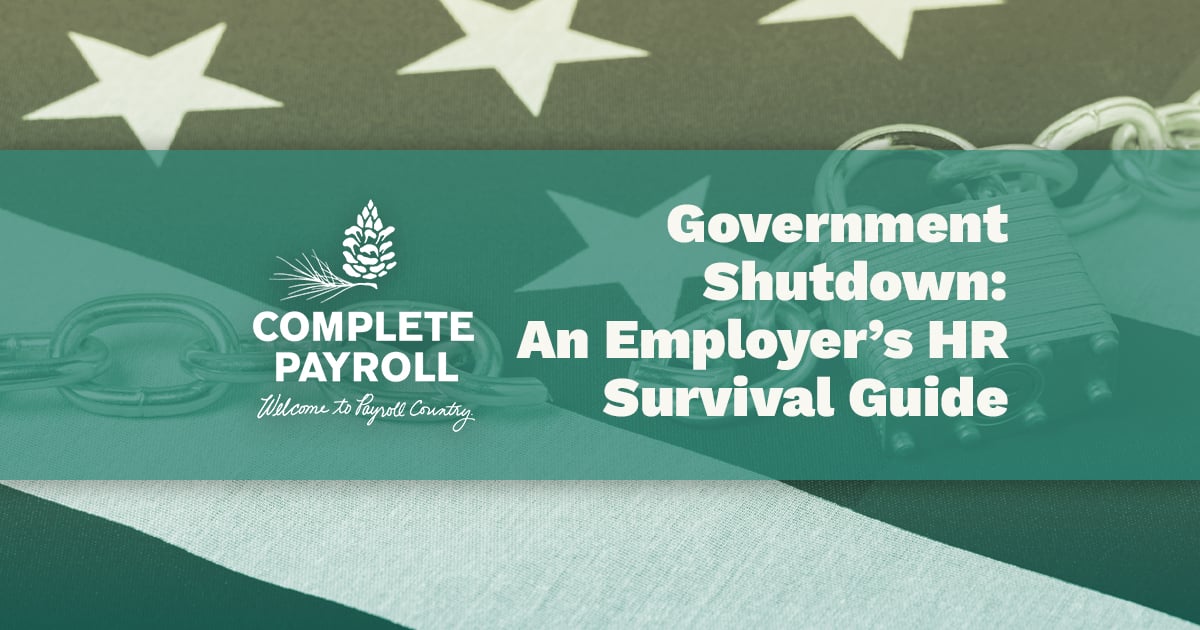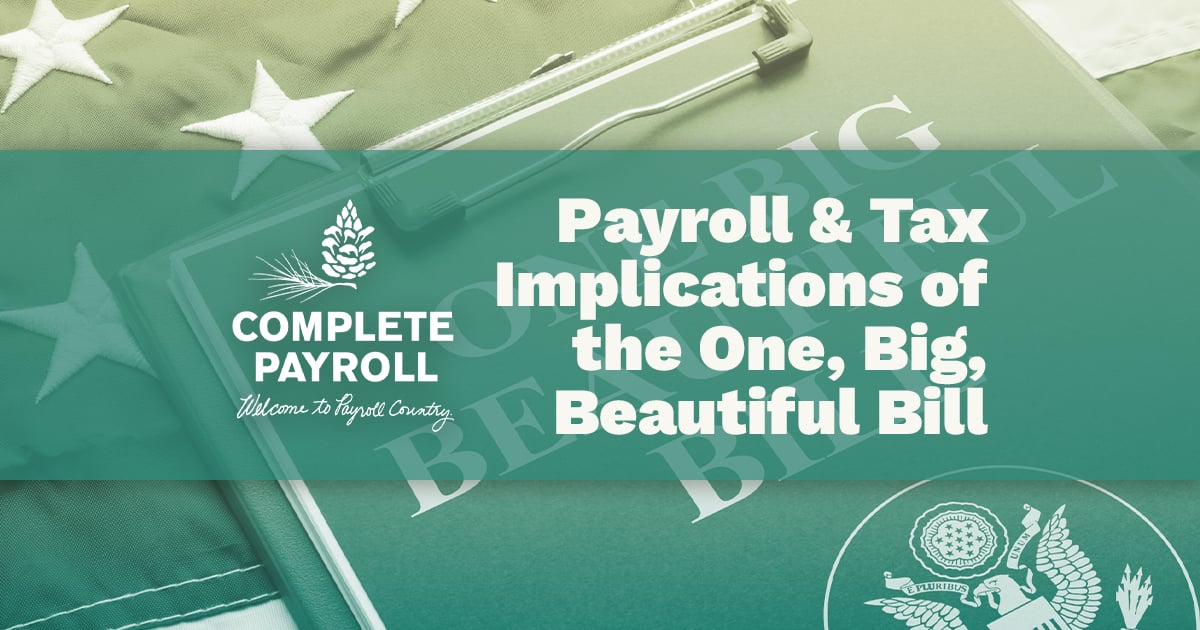Take a moment to think about what would happen if an employee sued you over a timekeeping disagreement. In addition to thousands of dollars in legal fees, you could be liable for many hours of back pay and stiff penalties from the federal government.
That’s exactly what happened to a small auto repair shop in Michigan in the case of Moran v. Al Basit LLC. The shop didn’t require its employees to use a formal timekeeping system. Instead, the owner tracked employee hours by looking at timestamps on security video footage each day, then discarding the footage.
After many months of work, Jeffrey Moran, a repair technician, sued the company for unpaid hours. Although the owner claimed Moran had worked exactly 30 hours per week, Moran said he’d worked 65 to 68 hours per week. The judge ruled in favor of Moran, finding it suspicious that the shop’s unorthodox method of timekeeping was so easily manipulated by the owner.
A Checklist of Best Practices
How can you keep your company from facing a similar legal issue? Follow best practices that keep your company in full compliance with the Fair Labor Standards Act (FLSA) and other rules from the U.S. Department of Labor. Here’s a checklist.
Record precise times, not estimates. Allowing employees to estimate their time can easily get out of hand. Encourage them to record exact times of work started and stopped, down to the minute.
Track it when it happens. Record time as it is worked, not days or weeks later. This prevents inaccuracies from bad memory.
Include bona fide meals and breaks. Federal and state laws allow for rest periods during the workday. In addition, your employees may get meal breaks. These periods should be recorded accurately, not estimated.
Track on-call time. Requiring employees to be on call is a complex issue in terms of pay and timekeeping. In general, track all on-call time, regardless of whether it’s paid or not.
Eliminate double standards. Maintain the same timekeeping practices across the board, for all employees. If managers are sloppy about tracking their own time, employees tend to notice and follow suit.
Plan for non-standard periods. During certain periods, like orientation, travel, and training, your employee may be away from their normal timekeeping system. Have a plan in place to track their hours during these periods.
Schedule approvals. If employees’ time tracking will have manager approval, schedule this at regular and predictable times. Employees should have an opportunity to review their hours and agree they are correct. Altering an employee’s time without their consent is a risky practice that has been the subject of numerous lawsuits.
Maintain records long-term. Federal and state laws require thorough payroll record-keeping that is preserved for at least three years. It’s a good idea to keep records even longer, in case of future legal action against your company.
Evaluate recording methods. Although the FLSA doesn’t require a specific method of timekeeping, some are better than others. Paper time cards come with disadvantages that are solved by a digital timeclock, for example. Evaluate various options to decide what’s best for your company.
Don’t make it a hassle. Tracking time shouldn’t take your employees more than a few minutes a day, or they’ll be more likely to resist doing it properly. Choose a method that is fast and intuitive.
Seek expert help. If your timekeeping process is a mess, enlist the help of a professional payroll service or seek out a payroll software platform that keeps everything organized. The worst mistake you can make is to ignore timekeeping issues that put your company at risk.
Complete Payroll helps businesses manage time wisely. Contact us today to reshape your payroll process. Or check out our awesome free resource, The Timekeeping Savings Calculator, which helps calculate how much time and money your organization can save by implementing a modern, automated timekeeping system.
If you're a small business owner or HR Manager trying to wrap your head around the complex world of time and attendance, check out our comprehensive resource page, Time and Attendance - A Complete Guide. This page spells out literally everything you'd need to know about time and attendance, including timekeeping procedures, time clocks, employee scheduling, compliance considerations, emerging trends and a whole bunch more.



















 Get Instant Blog Notifications
Get Instant Blog Notifications


